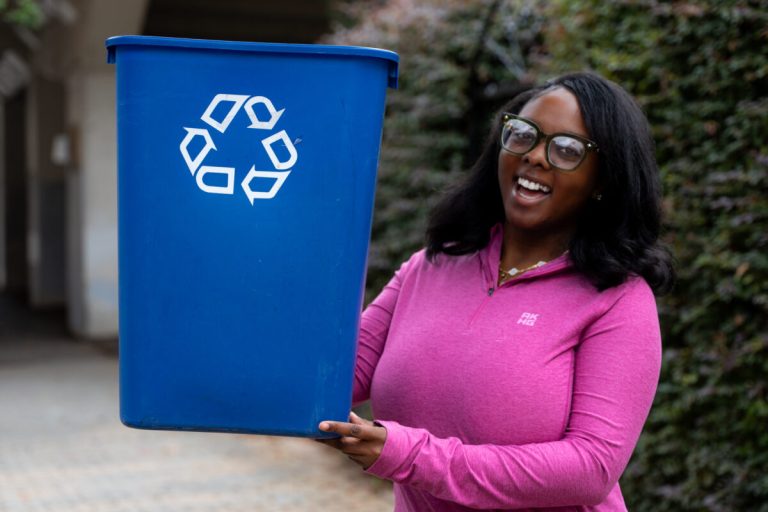Reviewed by: Patience Itson
Life-saving home fire prevention tips from B’ham Fire & Rescue Captain Reynolds
Reading time: 5 minutes
Sponsored

Did you know there are two to three home fires in Birmingham every week? It’s extremely important to know how to prevent a home fire as well as what to do if one breaks out. To learn more about home fire prevention and safety, we spoke with Captain Orlando Reynolds, a local firefighter who has been with Birmingham Fire & Rescue for 25 years.
Common Reasons for home fires in Birmingham

According to Captain Reynolds, the most common reasons Birmingham Fire & Rescue is called to a home fire stems from the kitchen.
“One common denominator that we’re seeing with fires in Birmingham is unattended cooking. Being distracted or stepping out into another room while the stove is on is a big risk for home fires. We’re also seeing fires accidentally started by juveniles heating up dinner before their parents get home.”
Captain Orlando Reynolds, Birmingham Fire & Rescue
In addition to unattended cooking, Birmingham Fire & Rescue has noticed several other common causes of home fires, including:
- Smoking in bed
- Keeping a candle lit during the night
- Improper use of a space heater
“We see the causes of home fires change during different times of the year. During the winter months, people are trying to stay warm, so we start seeing incidents where people keep a space heater on all night long, but don’t give it enough room to breathe. Remember to give space heaters enough space, and unplug them when you are away.”
Captain Orlando Reynolds, Birmingham Fire & Rescue
How to prevent + respond to a home fire
1. Keep a working smoke alarm in your home

According to the American Red Cross, having a smoke alarm can cut your risk of dying in a home fire nearly in half.
“Birmingham Fire & Rescue recommends all citizens here in Birmingham have a working smoke alarms—with the emphasis on working. Simply put, smoke alarms save lives.”
Captain Orlando Reynolds, Birmingham Fire & Rescue
According to the National Fire Alarm Code (NFPA 72), each household should have smoke alarms on each level of the home, including inside and outside bedrooms and sleeping areas. In addition, make sure to:
- Test your smoke alarms at least once a month
- Replace the batteries at least once a year, if you have battery-powered smoke alarms
- Replace your smoke alarms entirely after 10 years
2. Practice your Two Minute Escape Plan

“Birmingham Fire & Rescue asks all families to have an escape plan, for the simple reason that it saves lives. Of course, we don’t want a fire to happen at all. But if it does, we don’t want you to have to bury a loved one.”
Captain Orlando Reynolds, Birmingham Fire & Rescue
According to the American Red Cross, fire experts agree that you have two minutes to safely escape a home fire before it’s too late—which is why they stress the importance of creating a Two Minute Escape Plan for your household. Your escape plan should include:
- At least two ways to exit every room in your home
- A predetermined meeting spot at a safe distance away from your home where everyone knows to meet
Captain Reynolds recommends that each household practice their escape at least once a month.
“Make sure to practice your escape plan in the dark, too. When a fire occurs in your home, it can knock out a breaker and cut power, so you may find yourself in the dark. You’d be surprised at how many of us get lost in the dark in a home we’ve been living in for years.”
Captain Orlando Reynolds, Birmingham Fire & Rescue
Visit redcross.org/fire for more information, including a printable escape plan.
3. Teach your children not to hide from firefighters

When in a distressing situation like a home fire, children may instinctively run to a place where they feel safe—like a closet or under a bed. Although firefighters are trained to search these areas, it’s important to teach your children not to hide in the event of a home fire.
“One thing we need to teach our kids is not to hide from firefighters. Don’t get under the bed, don’t try to hide in closets. If you see a firefighter, or hear the breathing mechanism, you need to go to where that firefighter is—don’t run from them.”
Captain Orlando Reynolds, Birmingham Fire & Rescue
Finally, Captain Reynolds urges home fire escapees to let the firefighters handle the situation.
“Once you’re out of the house, stay out. Don’t go back in to look for your purse, your cell phone or even your pets. We know they are your loved ones, but once you’re out, you need to stay out.”
Captain Orlando Reynolds, Birmingham Fire & Rescue
Additional resources for home fire safety

To learn even more tips for home fire safety, check out the Home Fire Safety Checklist, practice the Fire Escape Plan Worksheets and visit the American Red Cross’ website to read more home fire information.
Have you developed and practiced a Home Fire Escape Plan? Tag the American Red Cross of Alabama at @ala_redcross to let them know!
Sponsored by:




